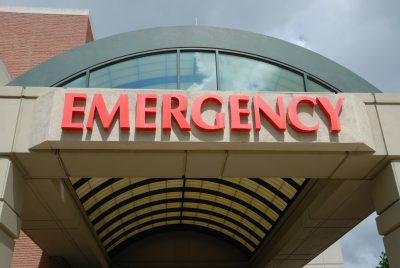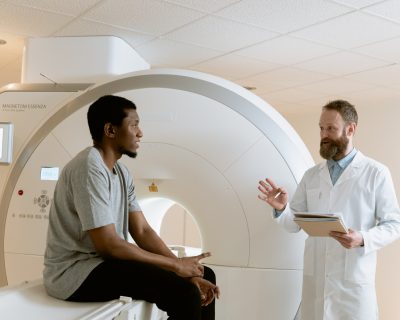Georgia Medical Malpractice Lawyer
 When we visit a medical professional, we expect them to provide quality care and skill. Though not part of the Hippocratic Oath, doctors have a creed that says, “First, do no harm.” Unfortunately, this creed is not always upheld. Doctors make mistakes, and when they do, they can cause serious, and sometimes fatal, injuries.
When we visit a medical professional, we expect them to provide quality care and skill. Though not part of the Hippocratic Oath, doctors have a creed that says, “First, do no harm.” Unfortunately, this creed is not always upheld. Doctors make mistakes, and when they do, they can cause serious, and sometimes fatal, injuries.
If your doctor or other medical professional causes undue harm in the course of treatment, they may be held liable for damages in a medical malpractice lawsuit. At Scholle Law, our malpractice attorneys have decades of experience representing victims who have been injured in a hospital, doctor’s office, or other facility.
Even though it is not required by law, most doctors carry malpractice insurance; in fact, virtually all hospitals require it. That, unfortunately, does not mean malpractice claims are cut-and-dry. The insurance company will likely fight the claim or offer a low settlement that barely covers your expenses – if it does at all.
Our experienced lawyers know the tricks and strategies insurance companies use to deny claims. Because of this, we know what it takes to get the compensation you deserve. Give us a call at (866) 592-1296 or contact us online for a free, no-obligation consultation with a Georgia medical malpractice lawyer today.
Common Types of Medical Malpractice Claims
 “Malpractice” is the legal term used to describe when members of certain professions do their jobs so badly that the work fails to live up to basic standards for that profession. This is not about ordinary bad outcomes, like an initial treatment plan not working properly.
“Malpractice” is the legal term used to describe when members of certain professions do their jobs so badly that the work fails to live up to basic standards for that profession. This is not about ordinary bad outcomes, like an initial treatment plan not working properly.
Rather, malpractice describes clearly unprofessional work, such as leaving surgical sponges inside a person’s body after surgery or missing an important legal deadline.
When professional malpractice leads to serious injury, property damage, or financial harm, you can hold the professionals involved responsible by filing a malpractice lawsuit.
The Georgia medical malpractice lawyers at Scholle Law have handled a variety of medical malpractice claims. The most common types of malpractice claims we see include:
- Misdiagnosis or delayed diagnosis
- Surgical errors
- Prescription drug errors
- Childbirth injuries
- Careless or negligent errors
- Anesthesia errors
- Emergency room errors
- Medical device errors
- Postoperative negligence
- Amputation injuries and errors
- Radiation injuries
- Pharmacist malpractice
- Ophthalmologist malpractice, including LASIK surgery malpractice
These errors can result in a number of complications. Some of these issues are relatively minor, but many can have lifelong impacts. These include:
- Short-term injuries
- Lasting disabilities
- Brain damage and disability caused by birth injuries
- Illness caused by prescription errors
- Long-term financial losses
Each medical malpractice claim requires a skilled legal approach. This ensures that patients receive the maximum compensation to which they are entitled.
Malpractice During Childbirth
 Over 99 percent of births occur in hospitals or other medical facilities. We rely on doctors and other medical professionals to help expectant mothers safely deliver their newborns. Unfortunately, errors made by the doctor could cause lifelong disabilities in infants. The most common birth injuries include:
Over 99 percent of births occur in hospitals or other medical facilities. We rely on doctors and other medical professionals to help expectant mothers safely deliver their newborns. Unfortunately, errors made by the doctor could cause lifelong disabilities in infants. The most common birth injuries include:
Cerebral Palsy
Cerebral palsy is a disorder affecting movement, speech, and coordination. It is a permanent disability that affects the quality of life (for both child and parent). While cerebral palsy can develop before birth, it can also be caused by birthing errors.
Erb’s Palsy
Erb’s palsy manifests as arm weakness and a loss of motion. It can occur in babies if the shoulder joint is damaged during birth. Erb’s Palsy can cause permanent nerve damage, weakness, and discomfort.
Brachial Plexus Injury
The brachial plexus is a network of nerves running through the neck and shoulder. A brachial plexus injury can occur if the baby is pulled to one side during delivery. It can also happen if the nerves are overstretched or compressed. A brachial plexus injury may be treatable, but in many cases, it can cause permanent harm.
How Is Medical Malpractice Proven?
Medical malpractice is not easy to prove. In order to successfully file a claim, you must show:
- The existence of a doctor-patient relationship
- The health care practitioner acted negligently towards you
- That you sustained an injury because of negligence
- You suffered harm as a result
1. Doctor-Patient Relationship
 First, you must show that the individual owed you a duty of care. All doctors owe their patients this duty. The professional relationship can extend to nurses, dentists, medical technicians, and pharmacists.
First, you must show that the individual owed you a duty of care. All doctors owe their patients this duty. The professional relationship can extend to nurses, dentists, medical technicians, and pharmacists.
2. Negligence
You must next show that the person’s actions fell below the accepted standards of care. This means establishing that a reasonable health care professional would have treated you differently. Proving negligence is typically the hardest part of medical malpractice claims.
3. Injury
You must show that a negligent act directly caused your injury. In other words, you are showing that you would not be injured if it was not for the defendant’s negligent acts. As with negligence, this part of the claim may be difficult to prove. Pre-existing conditions and other factors could increase the level of difficulty.
4. Real Damages
Finally, you must prove that you sustained a loss of some kind due to the health care provider’s negligence. It is not enough to prove negligent treatment. You must show that you suffered financial loss because of the injury. Qualifying losses may include:
- Medical expenses
- Lost income
- Pain and suffering
- Rehabilitation expenses
Speak to a Georgia Medical Malpractice Attorney Today

From left: Attorneys Annette Malena, Charles Scholle,
and Todd I. Shugart
Suffering serious injuries and/or disability due to a medical professional’s actions or negligence is perhaps one of the toughest situations you may face. After all, we trust our doctors with our lives – often literally.
When they fail to uphold the standard of care to which they are held, they can be held liable for injuries and losses you endure.
Unfortunately, proving medical malpractice can be extremely difficult. Even if you can prove it, the insurance companies that cover doctors are rarely interested in paying out compensation.
That’s why it is crucial you speak with an experienced personal injury lawyer as soon as possible if you believe you have been the victim of malpractice.
At Scholle Law, our experienced attorneys know the tricks and strategies insurance companies use to deny claims. Because of this, we know what it takes to get the compensation you deserve.
Give us a call at (866) 592-1296 or contact us online for a free, no-obligation consultation with a Georgia medical malpractice lawyer today.
Why do I need a medical malpractice lawyer?
You will need someone in your corner working against those who hurt you. Charles Scholle and the Duluth personal injury lawyers at our firm handle complex personal injury cases with skill and compassion.
We have significant experience dealing with complex medical issues. We are well-respected as Georgia medical malpractice lawyers. When we bring a case against a medical professional, the defendant knows we will build a strong case and hire the right experts. They know we will go to trial if necessary.
Clients rely on us to handle the most painful experiences of their lives. We seek justice and help them recover. This is our commitment to you and your family. We will work diligently to get you the recovery you should deserve.
Should I let my insurance cover a medical malpractice injury?
We cannot recommend any particular plan of action for your case without having all of the facts. Generally speaking, you may allow medical insurance to cover eligible losses. You may be reimbursed if you show later that you were injured through medical negligence. A medical malpractice claim may provide greater compensation than insurance does.
If you don't have any health insurance, it might be easier to get medical treatment on a lien basis. Call us to learn what this means and how we can help.
Call our team immediately if you've already received an insurance compensation offer. Medical malpractice injuries can be highly complex. Your offer may not be the fairest settlement available to you. We can help you make an informed decision before accepting a settlement.
Should I involve the police in my medical malpractice claim?
The police play a vital role in keeping communities and individuals safe from harm. However, medical malpractice is normally a civil matter, not a criminal one. Your local police force is not best placed to assist you with your claim.
Contact a Duluth medical malpractice attorney instead. We can help you navigate the entire claims process. We'll ensure that your claim has the best possible chance of success.
What is the difference between medical malpractice and medical negligence?
Medical malpractice is a form of medical negligence.
Medical negligence describes a medical practitioner's failure to uphold their duty of care to their patient. They fall short of the professional standards. Their carelessness causes harm which leads to injury.
Negligence occurred if your healthcare provider failed to treat you with the same standard of care that their peers would. It also occurred if they fell grossly short of the professional standards expected of them. You may be able to start a medical malpractice claim against them.
Medical malpractice claims stem from a medical practitioner's negligence. At Scholle Law, our attorneys have the experience and expertise to identify potential medical malpractice claims. Contact us right away if you think you have a claim.
Who can be held liable for my medical malpractice injury?
Your individual circumstances dictate who is liable for your injuries. You may sue the following parties.
Medical Practitioner
From surgeons to anesthesiologists, you might be able to sue your medical care provider for medical malpractice. We prove their negligence by showing:
- The medical practitioner owed you a duty of care
- They deviated from the accepted standard for the healthcare profession
- Breached their duty of care towards you, causing you harm
- This harm you suffered led to injury
More than one practitioner may be liable.
Hospital
A hospital may be directly responsible for a medical injury if it failed to protect a patient from harm. It may also be liable if it failed to research a medical practitioner's education, training, licensing, and suitability.
Sometimes, a hospital can be held "vicariously" liable for the actions of its employees. This occurs if the negligent person was acting within the scope of their employment at the time of the incident. Vicarious liability can be helpful to injured parties. It helps to ensure they are properly compensated following a case of medical malpractice.
A hospital cannot be held vicariously liable if the medical practitioner was acting as an independent contractor at the time. Your attorney can give you more advice on who you may sue in your claim.
